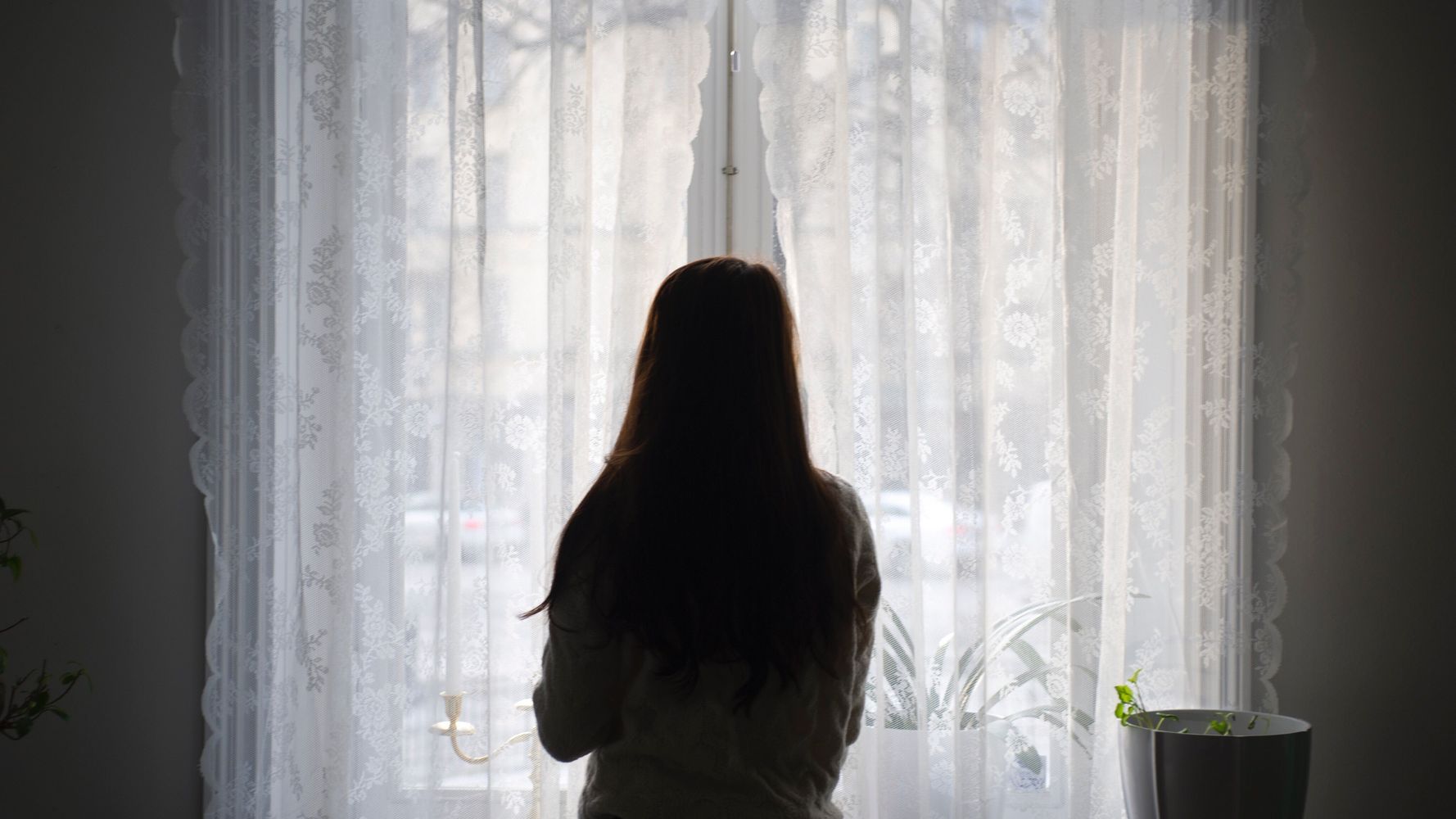[ad_1]

The next coronavirus aid bill needs to prioritize victims of domestic and sexual violence, who are particularly vulnerable as stay-at-home orders leave them isolated with their abusers, dozens of senators wrote in letters to leadership on Monday.
In two letters that were shared with HuffPost ahead of their release, the bipartisan group of senators called for more resources and funding for victims of intimate partner violence, sexual assault and family violence as the coronavirus outbreak spreads around the U.S.
“Even during the middle of a pandemic, [victims of domestic violence] are not going to be forgotten,” Sen. Amy Klobuchar (D-Minn.), who co-wrote the letters along with Sens. Lisa Murkowski (R-Alaska) and Bob Casey (D-Pa.), told HuffPost by phone on Monday.
“We have to stand by their side, even when we can’t see them,” she added. “There’s always been an issue of domestic violence victims being silent and unseen, that it’s the crime behind the bedroom door. Well, that is only exacerbated by this current pandemic.”
Past aid packages from Congress have focused on economic aid as many people are out of work. But the coronavirus pandemic has also led to a domestic violence crisis. Incidences of violence often increase during emergency situations like the one the world is currently facing, studies show. Since shelter-in-place orders were implemented in the last two months, experts have seen an uptick in child sexual abuse and domestic violence reports.
Many advocates cautioned HuffPost that the actual number of cases is likely much higher since most victims are unable to report or seek help when they’re stuck at home with their abuser.
As part of the first coronavirus relief bill, lawmakers included $45 million to provide more support to family violence shelters and $2 million for the National Domestic Violence Hotline.
But senators said more needs to be done. They asked the Department of Justice to offer more funding to the Sexual Assault Service Program and the Violence Against Women Act’s STOP grants. Additionally, they urge more federal funding for the Family Violence and Prevention Services program and the Centers for Disease Control and Prevention, so it can coordinate language-accessible public outreach.
“At a time when people who experience domestic violence are at increased risk, and requests for sexual assault and domestic violence-related services have sharply increased, additional funding for these programs is critical,” reads one letter.
The lawmakers also asked for more funding to be set aside for tribal organizations and governments, such as the National Indigenous Women’s Resource Center and Alaska Native Women’s Resource Center, to better deal with the inevitable increase in intimate partner violence, sexual assault and family violence as more people face unemployment.
“Shelters and Tribal advocacy programs are often all that stand between safety and Native women going missing and/or murdered,” one of the letters reads. “In addition, because many rural Tribal communities lack the necessary infrastructure to take advantage of internet-based options, we ask that there be outreach to these communities whether from the federal departments or through enlistment of technical advisers who have established relationships with many of these communities.”
More emergency funding for sexual assault centers is also needed, advocates said. Many sexual violence crisis centers are facing a shortage of staff and resources, making it much harder for sexual assault victims to obtain necessary care.
More than 600 local anti-sexual violence programs have reported they need more funding to continue their services and transition to virtual services in order to reach the most vulnerable populations, Terri Poore, policy director at the National Alliance to End Sexual Violence, said in a statement on Monday.
“Rape crisis centers provide the nation’s frontline response to sexual assault. They are passionate about supporting survivors during this time of intense crisis,” Poore said.
Klobuchar and Murkowski, along with two dozen other senators, previously called on the Trump administration to ensure that domestic violence and sexual assault survivors are not forgotten during the pandemic. The lawmakers wrote a letter last month to the Department of Health and Human Services asking it to ensure anti-domestic violence and anti-sexual violence organizations have the “flexiblity, resources and information needed to continue to provide these critical services during the pandemic.”
Click through the links below to read the letters in full.
Need help? Visit RAINN’s National Sexual Assault Online Hotline or the National Sexual Violence Resource Center’s website.
Need help? In the U.S., call 1-800-799-SAFE (7233) for the National Domestic Violence Hotline.
A HuffPost Guide To Coronavirus
Calling all HuffPost superfans!
Sign up for membership to become a founding member and help shape HuffPost’s next chapter
[ad_2]
Source link

